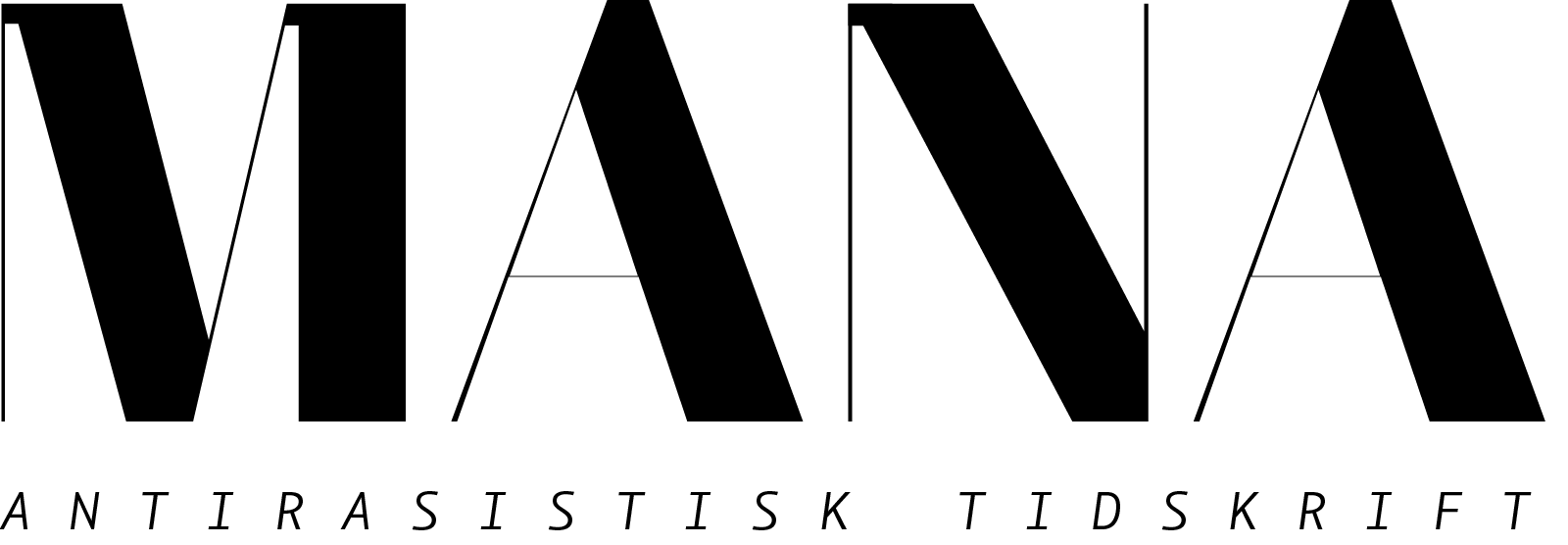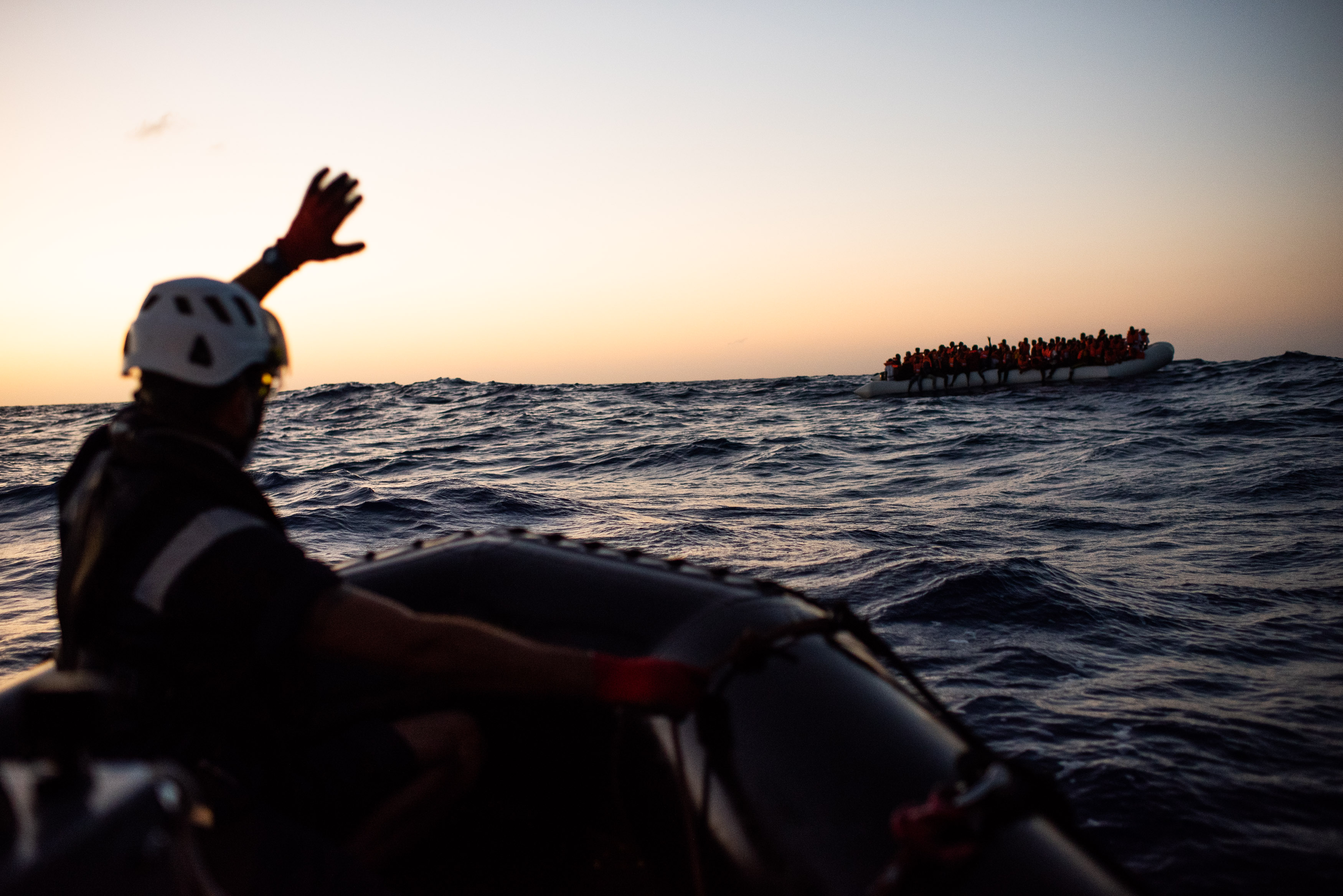While Italy operated the last state-led rescue operation Mare Nostrum until the year 2014, no government has made any effort to resume rescue operations in the central Mediterranean since then. It has been small NGOs, individuals and activists who have taken on the task of rescuing thousands of people in distress, while repeatedly calling on the authorities to fulfill their duty. Thus, almost eight years ago, on June 20, 2015, the small fishing boat Sea-Watch 1 left the port of Lampedusa for the first time to sail to its area of operation off the Libyan coast. The goal was clear: finding boats, rescuing people, and urging state authorities to intervene. By calling for state-run sea rescue and safe, legal entry routes into the European Union, activists from Sea-Watch wanted to put an end to the dying in the Mediterranean, making the own organization obsolete as quickly as possible.
As it is required by law to take people to the nearest safe place, Italy has been the destination for ships to dock and disembark survivors. With continuous arrivals in Italian ports and no support from other European member states, much has changed in recent years, but unfortunately only for the worst. Let’s first look back at the past few months to then look forward and make clear why we need to break the deadly silence about the drowning of thousands of people right at our doorstep.
September 2022. For months before, rescue ships were detained in Italian ports. The reason? Simply because they lacked imaginary certificates, which do not even exist, and because they had too many rescued people on board. By using port state controls after every disembarkation in port, Italian authorities aimed to prevent NGOs from rescuing people at sea, ensuring that no one reached the European mainland alive. After a complaint against these arbitrary port state controls was filed, there was finally a moment of relief: the European Court of Justice ruled in favor of the NGOs. Port state controls can no longer be used arbitrarily against NGOs in the future to detain ships and prevent them from doing their work. A ruling that should have brought clear security for the civil fleet of rescue ships…
…A month after the ruling, in September 2022, the Sea-Watch 3, the third vessel operated by Sea-Watch since 2015, entered the port of Reggio Calabria. 22 crew members successfully conducted ten rescue operations within a few days only. On the deck of the 50-meter-long ship were 428 survivors looking for a safer and better future. The crew was happy and eager to catch up on some sleep to recharge the batteries for yet another operation – A plan that the Italian authorities were all too happy to cross. On September 21, several Italian officials showed up on the pier and conducted yet another port state control. Once again, they decide to detain the ship and forced it to remain in the port of Reggio Calabria, ignoring the ruling of the European Court of Justice and inventing more imaginary reasons for the detention. Suddenly it became clear very quickly: the Sea-Watch 3 will not rescue anyone in the future, no matter how many complaints are filed.
October 2022. A month after the Sea-Watch 3 being detained, Italy decided to elect a new prime minister: Giorgia Meloni, head of the neo-fascist party “Fratelli d’Italia”. Together with the Forza Italia around ex-prime minister Silvio Berlusconi and ex-interior minister Matteo Salvini’s Lega, an alliance of Mussolini nostalgics and far-right politicians dedicated to fighting migration was born. Their goal? Stopping people from migrating to Europe at any cost. Together, they entered a new level of escalation in a never-ending debate reminding of nothing else than that of former Interior Minister Matteo Salvini in 2019.
December 2022. Giorgia Meloni’s alliance launched a new propaganda law aimed at hindering civil sea rescue operations in the central Mediterranean. Under the law, rescue organizations will face harsh penalties if they do not immediately leave to head north after an initial rescue, whether there are other distress cases in the area or not – a de facto order to let people drown at sea that violates every captain’s duty to rescue, which is enshrined in international law. In the case of non-compliance with Italy’s new propaganda law, administrative sanctions ranging from fines up to €50,000, detention of the vessel, to seizure and confiscation of the ship were imposed.
March 2023. Months after the new Italian law came into force, rescue ships were already facing the consequences. Although they were ready to rescue, they found themselves stuck in port, unable to respond to potential tragedies. When a boat with about 200 people on board left Turkey, hoping to find a better future in the European Union, the consequences of Italy’s harsh migration policy and the deadly inaction of European authorities became crystal clear: Shortly before reaching the Italian mainland, the boat was unable to maneuver through the bad weather and capsized in waves more than two meters high. 79 survivors were rescued, while only 74 bodies were found, leaving several people still missing. Although the Italian authorities knew about the boat in distress, they did not see the need to initiate an adequate rescue operation in time and to this day refuse to take responsibility for the disaster. Instead of mourning the dead and asking their families for forgiveness for their failure to do so, Meloni called for tougher measures against smugglers in the central Mediterranean, ignoring the fact that it was the inability of the Italian authorities to provide assistance and the own political will to let those people drown.
Just two weeks after the shipwreck off the coast of Crotone, Italian authorities again refused to launch a rescue operation for a boat with about 50 people on board, despite knowing about it for more than 24 hours. With rescue ships stuck in ports and unable to help, the NGOs repeatedly called on the authorities to intervene and finally send a boat – without success. The consequence of their inaction? The boat capsized. 17 survivors were rescued, while 30 people remain missing. These shipwrecks are the direct result of an EU border policy that forces people onto ever longer and more dangerous routes. They are the result of the authorities’ unwillingness to intervene, of racism within European governments, and the political will to let people drown in the Mediterranean as a deterrent. The worst thing? These shipwrecks will not be the last.
26,141 people have died or are missing in the Mediterranean Sea since 2014. A number that is made up of brothers, sisters, mothers, children, friends, and families. In the few months of this year alone, 383 people have lost their lives. The response of the European Union and the relevant authorities to the lives that were lost is not legal and safe escape routes. It is walls, barbed wire and fences. When the European Union has institutionalized its violence against people on the move at its externalized borders only one question remains: What should we, as civil society, do now?
Noise! Making noise about the racist conditions at the external borders of the European Union is the only way to bring about political change. We must unite, strengthen each other, and stand in solidarity. We must stand up to intimidation, fight back and overcome barriers. We must demand justice, hold the ones responsible accountable, and advocate for change. Let’s be so loud and outraged that our voices break the silent circle of the dying in the central Mediterranean.

